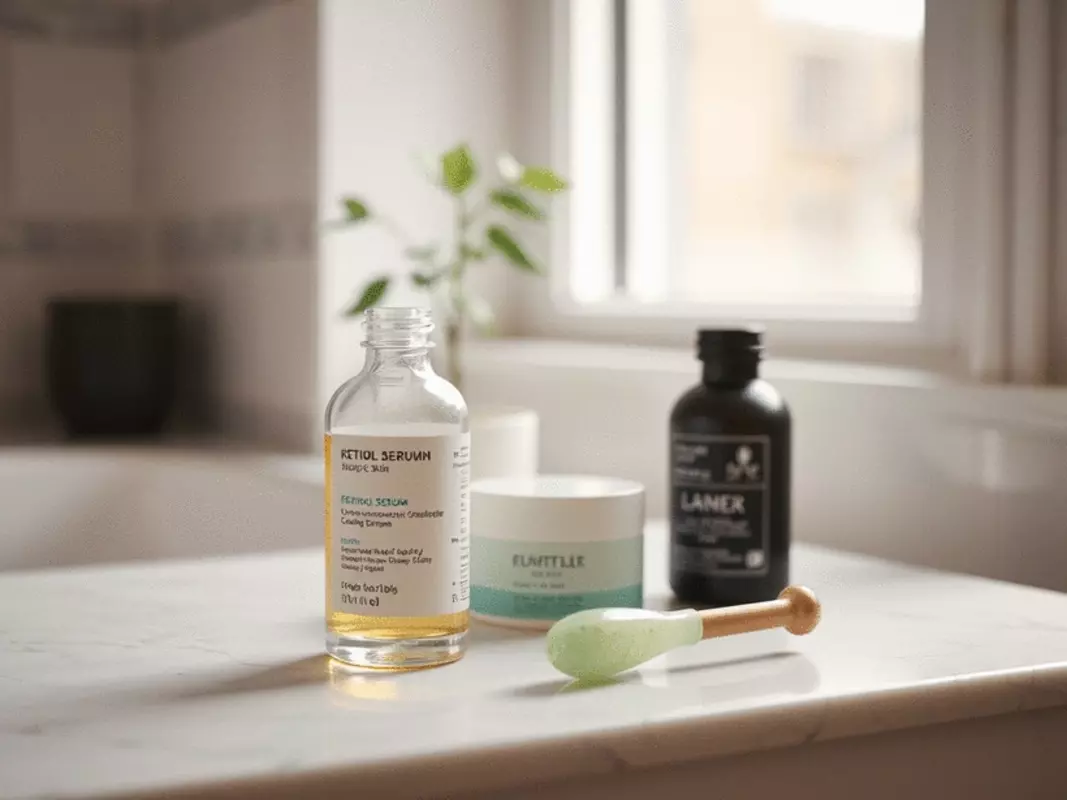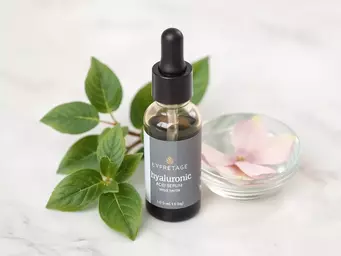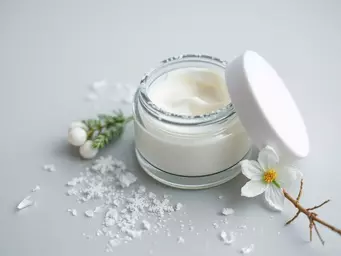Gentle Skincare for Dry, Acne-Prone Skin
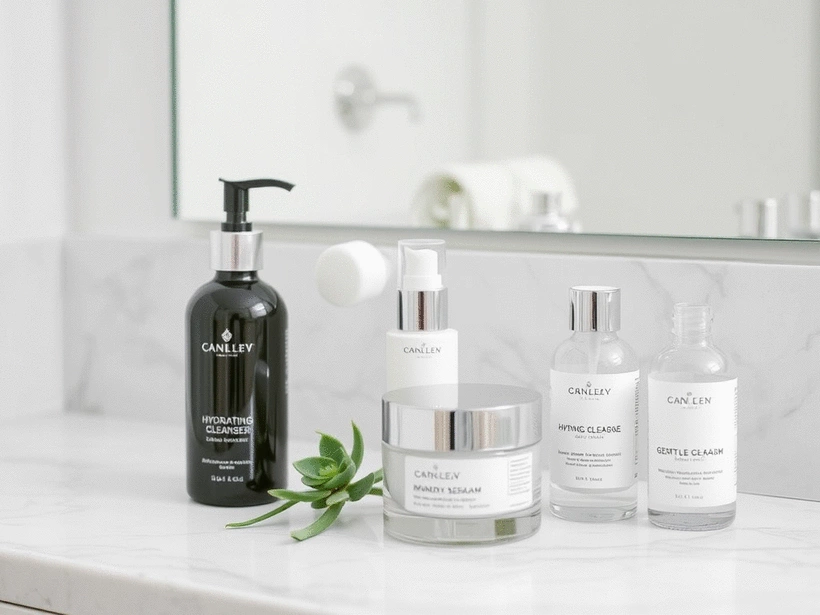
Have you ever felt the frustration of battling both dryness and acne at the same time? You're not alone, and understanding this unique skin condition is the first step toward achieving balance and clarity. Let's explore effective strategies tailored for those with dry, acne-prone skin.
What You Will Learn
- Key factors contributing to dry, acne-prone skin include environmental stressors, over-cleansing, and genetics.
- Common symptoms to watch for are flaky patches, redness, and the presence of breakouts, especially in the T-zone.
- Adjust your skincare routine according to hormonal changes to effectively manage dryness and acne simultaneously.
- Recognizing when to seek professional help is crucial; persistent or severe symptoms often require expert assessment.
Key Characteristics of Dry, Acne-Prone Skin
This visual highlights the common symptoms and contributing factors to dry, acne-prone skin, essential for effective management.
Contributing Factors
- Environmental factors: Low humidity, harsh weather, air conditioning.
- Over-cleansing: Harsh cleansers stripping essential oils.
- Genetics: Predisposition to dryness and acne.
Common Symptoms Identified
- Flaky patches: Often in driest areas.
- Redness and irritation: Accompanying breakouts.
- Breakouts: Appearing alongside dry patches, especially in T-zone.
When to Seek Professional Help
- Persistent acne unresponsive to OTC treatments.
- Severe dryness/irritation worsening despite adjustments.
- Concerning changes in skin texture or color.
Long-Term Maintenance & Habits
- Adjust routine based on hormonal changes (e.g., menstrual cycle).
- Incorporate targeted treatments during breakouts.
- Balanced diet, hydration, and stress management.
Understanding Dry, Acne-Prone Skin: Key Characteristics and Needs
Have you ever felt like your skin is caught in a tug-of-war? If you're dealing with both dryness and acne, you’re not alone! At Dry Acne Solutions, we understand the unique challenges of managing this combination, and I’m here to guide you through it.
Dry, acne-prone skin often lacks moisture while simultaneously being susceptible to breakouts. This paradox can result in a range of frustrations, from flaky patches to painful blemishes. Knowing what contributes to these conditions is the first step toward effective management!
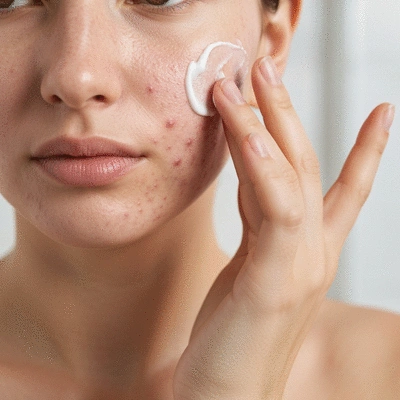
What Makes Skin Dry and Acne-Prone?
Understanding the factors behind dry, acne-prone skin is crucial for developing a successful skincare routine. In many cases, this combination results from a disrupted skin barrier, which can be influenced by various factors, including:
- Environmental factors: Low humidity, harsh weather, or air conditioning can strip moisture from your skin.
- Over-cleansing: Using harsh cleansers may remove essential oils, leading to dryness and irritation.
- Genetics: Some individuals are genetically predisposed to both dryness and acne, making effective treatment even more critical. Research published in the Journal of Clinical and Aesthetic Dermatology highlights the complex interplay of genetics and environmental factors in skin conditions.
By identifying these factors, we can tailor a skincare approach that addresses both dryness and acne effectively. Remember, achieving balance is key!
Common Symptoms and Signs to Identify
Identifying the symptoms of dry, acne-prone skin can help you choose the right products and routines. Here are some signs to look for:
- Flaky patches: These often occur in areas where the skin is driest.
- Redness and irritation: This can accompany breakouts, making the skin feel sensitive.
- Breakouts: These may appear alongside dry patches, particularly in the T-zone. The American Academy of Dermatology Association provides further insights into managing dry, acne-prone skin.
If you're noticing a combination of these symptoms, it’s time to rethink your skincare approach. At Dry Acne Solutions, our goal is to empower you to restore your skin’s balance and health!
Pro Tip
To effectively manage dry, acne-prone skin, consider incorporating a hydrating serum with hyaluronic acid in your routine. This ingredient helps to attract moisture to the skin without clogging pores, creating a perfect balance between hydration and acne prevention!
Maintaining Your Gentle Skincare Routine Long-Term
Establishing a gentle skincare routine is just the beginning of your journey to healthy skin! As a dermatologist, I often emphasize that maintaining this routine requires ongoing adjustments, especially as your body undergoes various changes. Understanding how to tweak your regimen according to hormonal shifts will play a crucial role in keeping your skin balanced and clear.
Adjusting Your Routine Based on Hormonal Changes
Hormonal fluctuations can significantly impact your skin's behavior. For instance, many individuals experience increased oiliness or acne during their menstrual cycle. It's important to recognize these patterns and adapt your skincare routine accordingly. Here are some adjustments you might consider:
- During hormonal breakouts: Incorporate targeted treatments that focus on acne while still maintaining hydration.
- In the days leading to your period: Opt for lighter, oil-free moisturizers to prevent excess oil production.
- Post-cycle: Focus on restorative products with soothing ingredients to calm any irritation.
By actively listening to your skin, you can make informed decisions about what products to use and when to adjust your routine. This is a key part of managing dry, acne-prone skin effectively!

When to Seek Professional Help for Skin Concerns
While a solid skincare routine can address many issues, sometimes, it’s best to consult a professional. Knowing when to seek help is essential to ensure that you’re on the right path. Here are signs that it might be time to contact a dermatologist:
- Persistent acne that doesn't respond to over-the-counter treatments.
- Severe dryness or irritation that worsens despite routine adjustments.
- Changes in skin texture or color that concern you.
Understanding Dermatologist Recommendations for Persistent Issues
As you navigate your skincare journey, remember that dermatologists like myself are here to support you! We can offer specialized solutions tailored to your unique skin type and challenges. Whether it’s prescription treatments or more advanced therapies, professional guidance can help you achieve the clear, hydrated skin you deserve. The experts at CeraVe offer valuable advice on treating dry skin with acne. So don’t hesitate to reach out when you need that extra layer of support!
Final Thoughts on Building a Gentle Skincare Routine
As we wrap up our discussion on maintaining a gentle skincare routine, it’s important to take a moment to recap the key takeaways. Embracing hydration, understanding your skin's unique needs, and knowing when to seek professional help are all vital components of your skincare strategy. Consistency is key! Your commitment will yield the best results in the long run.
Encouragement to Commit to Your Skincare Journey
Remember, building a skincare routine tailored to your needs is a marathon, not a sprint! Celebrate your progress, no matter how small. Each step forward in your journey is a step toward healthier skin. Be patient, and don’t shy away from sharing your experiences with others who might be facing similar challenges!
Incorporating Lifestyle Factors for Healthier Skin Habits
Additionally, lifestyle factors play a significant role in skin health. Ensure you’re eating a balanced diet rich in antioxidants, staying hydrated, and managing stress levels. These habits complement your skincare routine and can make a world of difference in achieving that vibrant, clear skin we all strive for. Let's continue this journey together, and remember that at Dry Acne Solutions, you’re never alone in your quest for healthy skin!
Recap of Key Points
Here is a quick recap of the important points discussed in the article:
- Understand the factors contributing to dry, acne-prone skin, including environmental elements, over-cleansing, and genetics.
- Identify common symptoms like flaky patches, redness, and breakouts to tailor your skincare routine effectively.
- Adjust your skincare regimen based on hormonal changes to maintain balance and hydration.
- Seek professional help when experiencing persistent acne, severe dryness, or concerning changes in skin texture.
- Commit to a consistent and gentle skincare routine while incorporating healthy lifestyle factors for optimal skin health.
Frequently Asked Questions (FAQs)
- Q: What are the main causes of dry, acne-prone skin?
- A: Dry, acne-prone skin can be caused by environmental factors like low humidity, over-cleansing with harsh products, and genetic predisposition. These factors can disrupt the skin barrier, leading to both dryness and breakouts.
- Q: How can I identify if I have dry, acne-prone skin?
- A: Common symptoms include flaky patches, especially in drier areas, redness and irritation accompanying breakouts, and acne appearing alongside dry patches, particularly in the T-zone.
- Q: Should I adjust my skincare routine based on hormonal changes?
- A: Yes, hormonal fluctuations can significantly impact your skin. It's beneficial to adapt your routine, for example, by using targeted treatments during hormonal breakouts or opting for lighter moisturizers during periods of increased oiliness.
- Q: When is it necessary to seek professional help for my skin concerns?
- A: You should consult a dermatologist if you have persistent acne that doesn't respond to over-the-counter treatments, severe dryness or irritation that worsens despite routine adjustments, or any concerning changes in skin texture or color.
- Q: What lifestyle factors can contribute to healthier skin?
- A: Beyond a good skincare routine, incorporating a balanced diet rich in antioxidants, staying well-hydrated, and managing stress levels can significantly improve overall skin health and complement your skincare efforts.



